
Cuisine
Angolan cuisine
Angolan cuisine is characterized by its bold flavors and use of fresh, locally-sourced ingredients. Seafood is a staple of the cuisine, with dishes such as caldeirada (a fish stew) and camarão grelhado (grilled shrimp) being popular choices. The cuisine also features a number of hearty stews and soups, such as feijoada (a bean and meat stew) and muamba de galinha (a chicken and okra stew). Tropical fruits, such as mangoes and papayas, are often used to add sweetness and acidity to dishes.
Typical ingredients
Seafood (including shrimp, crab, fish), Chicken, Beef, Beans, Cassava, Sweet potatoes, Okra, Tomatoes, Onions, Garlic, Ginger, Chilies, Tropical fruits (such as mangoes and papayas)
Presentation and garnishing
Dishes are typically served family-style, with large platters of food placed in the center of the table. Garnishes may include fresh herbs, such as parsley or cilantro, and sliced vegetables, such as tomatoes or cucumbers.
Angolan cuisine is still relatively unknown outside of the region, but is gaining popularity as more people become interested in exploring the diverse culinary traditions of Africa.
More cuisines from this region...
Cameroonian cuisine, Congolese cuisine, Centrafrican cuisine, Chadian cuisine, Gabonese cuisine, Equatorial Guinea cuisine, Cuisine of São Tomé and Príncipe
History
Angolan cuisine has a long history that dates back to the pre-colonial era. The region was home to a number of different ethnic groups, each with their own unique culinary traditions. Over time, these traditions blended together to create the diverse cuisine that is now known as Angolan cuisine. The cuisine has also been influenced by the region's history of colonization, particularly by the Portuguese.
Cultural significance
Food is an important part of Angolan culture, and many dishes are associated with specific events and celebrations. For example, feijoada is often served at weddings and other special occasions. The cuisine is also an important part of the region's economy, with many people making a living through fishing and food production.
Health benefits and considerations
Many traditional Angolan dishes are high in calories and fat, and may not be suitable for those with certain health conditions. However, the cuisine also features a number of healthy options, such as grilled fish and vegetable stews.
Angolan cuisine dishes
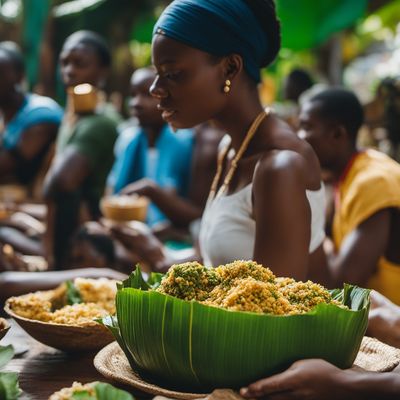
Chikwanga
Chikwanga is a traditional African dish that is made with cornmeal and wrapped in banana leaves. It is a popular street food in many African countries and is often served with...
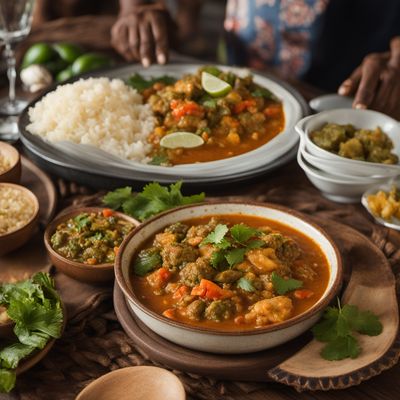
Calulu
Calulu is a traditional Angolan dish that is made with fish, vegetables, and palm oil. The dish is known for its rich and flavorful taste, and it is often served with funge, a...
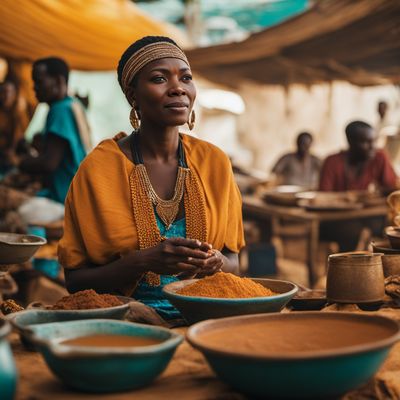
Funge
Funge is a traditional dish from Angola, made from cassava flour. It is a staple food in many African countries and is often served with stews or sauces.

Muamba de galinha
Muamba de galinha is a traditional dish from Angola. It consists of chicken that has been cooked in a spicy sauce, and is typically served with funge, a type of cornmeal porridge.

Mufete
Grilled fish with vegetables
Mufete is a traditional dish from the island of São Tomé and Príncipe. It is a hearty and flavorful dish that is perfect for a family dinner or a special occasion.
Angolan cuisine recipes Browse all »

Angolan-style Grilled Bread
Saboroso Pão Grelhado Angolano (Delicious Angolan Grilled Bread)

Angolan-inspired Farik Soup
Savory Farik Delight: A Taste of Angola

Angolan-style Jambon aux Mogettes
Savory Angolan Ham and Bean Stew

Angolan-style Duck Ragù
Savory Angolan Duck Delight
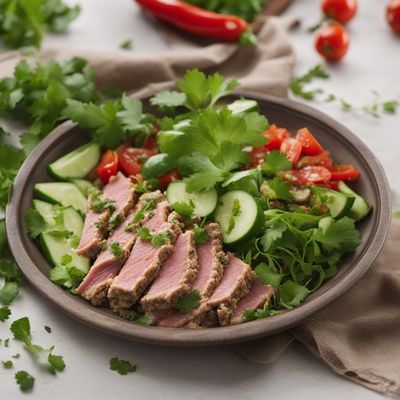
Angolan-style Tuna Salad
Savory Tuna Delight: A Taste of Angola
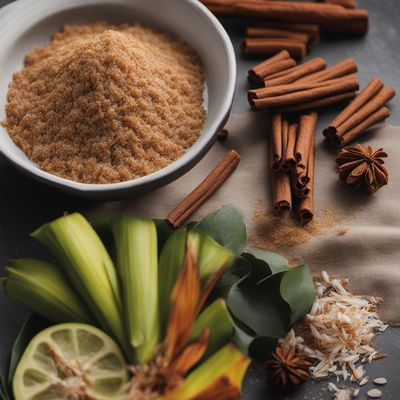
Chikwanga with a Twist
Savory Cornbread Delight: Chikwanga Reinvented
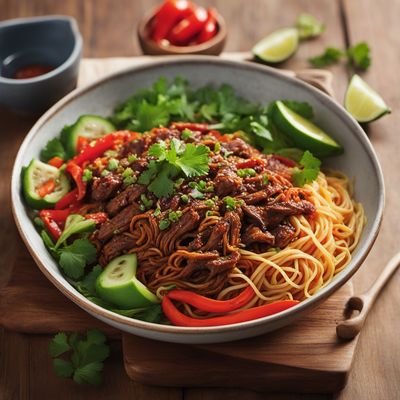
Angolan-style Kolo Mee
Savory Noodle Delight: Angolan-style Kolo Mee
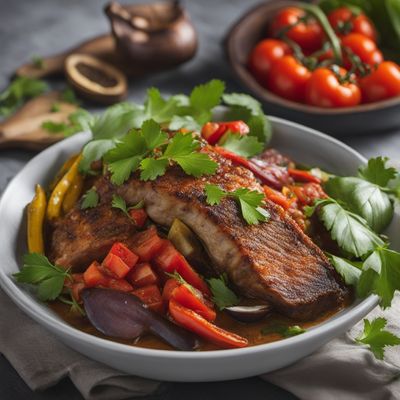
Angolan Calulu with Fresh Fish and Vegetables
Savory Delight: Angolan Calulu - A Flavorful Harmony of Fresh Fish and Vibrant Vegetables

Angolan-inspired Olive Oil Cake
Savory Delight: Angolan-inspired Olive Oil Cake with a Twist

Angolan Baci di Dama
Delicate Almond Cookies with a Tropical Twist
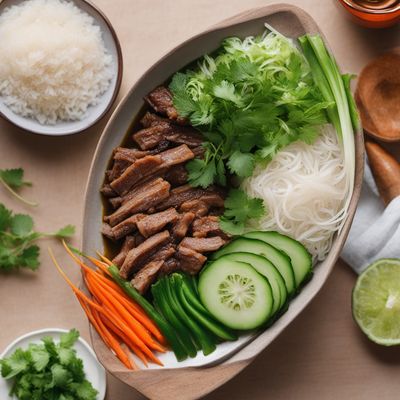
Angolan-style Bún Đậu Mắm Tôm
Savory Angolan Delight: Bún Đậu Mắm Tôm with a Twist

Angolan Coconut Rice Cake
Tropical Delight: Angolan Coconut Rice Cake